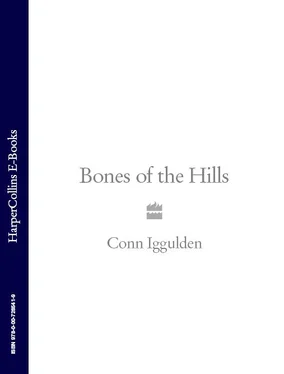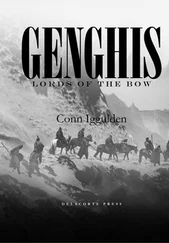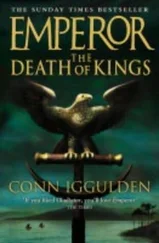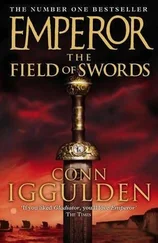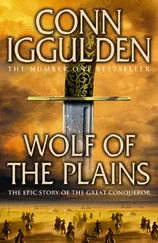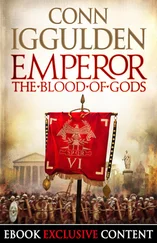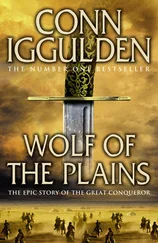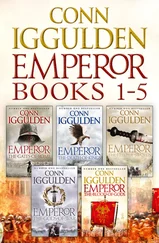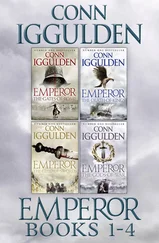Conn Iggulden - Bones Of the Hills
Здесь есть возможность читать онлайн «Conn Iggulden - Bones Of the Hills» — ознакомительный отрывок электронной книги совершенно бесплатно, а после прочтения отрывка купить полную версию. В некоторых случаях можно слушать аудио, скачать через торрент в формате fb2 и присутствует краткое содержание. Жанр: Исторические приключения, на английском языке. Описание произведения, (предисловие) а так же отзывы посетителей доступны на портале библиотеки ЛибКат.
- Название:Bones Of the Hills
- Автор:
- Жанр:
- Год:неизвестен
- ISBN:нет данных
- Рейтинг книги:4 / 5. Голосов: 1
-
Избранное:Добавить в избранное
- Отзывы:
-
Ваша оценка:
- 80
- 1
- 2
- 3
- 4
- 5
Bones Of the Hills: краткое содержание, описание и аннотация
Предлагаем к чтению аннотацию, описание, краткое содержание или предисловие (зависит от того, что написал сам автор книги «Bones Of the Hills»). Если вы не нашли необходимую информацию о книге — напишите в комментариях, мы постараемся отыскать её.
Bones Of the Hills — читать онлайн ознакомительный отрывок
Ниже представлен текст книги, разбитый по страницам. Система сохранения места последней прочитанной страницы, позволяет с удобством читать онлайн бесплатно книгу «Bones Of the Hills», без необходимости каждый раз заново искать на чём Вы остановились. Поставьте закладку, и сможете в любой момент перейти на страницу, на которой закончили чтение.
Интервал:
Закладка:
The khan opened his mouth to order the tumans forward, but the prince turned his horse and dug in his heels. His army had left a clear route back to the river bank and Genghis realised at last what Jelaudin was going to do. The khan had seen the drop on the previous day and he winced in appreciation.
Jelaudin reached the muddy bank at a gallop. Without hesitation, horse and man leapt, plunging over the edge. The tumans were close enough to hear the great splash that followed and Genghis nodded to himself.
‘Did you see that, Kublai? Mongke?’ he called out, startling the boys from their awe.
Kublai answered him first.
‘I saw. Is he dead?’
Genghis shrugged.
‘Perhaps. It was a long drop to the river.’
He thought for a moment, wanting his grandsons to appreciate the dramatic gesture of contempt. Jelaudin could have climbed down at any point in the night, but he had wanted the khan to see the reckless courage of his race. As a horseman born, Genghis had enjoyed the moment more than any other part of the campaign, but it was difficult to explain to the boys.
‘Remember the name of Jelaudin, Kublai. He was a strong enemy.’
‘That is a good thing?’ Kublai asked, perplexed.
Genghis nodded. ‘Even enemies can have honour. His father was fortunate to have such a son. Remember this day and perhaps in time you will make your own father proud.’
Ahead of him, Jelaudin’s army closed the gap and raised their swords. Jelaudin’s three brothers strode forward with tears of joy in their eyes.
Genghis smiled, though he did not forget to send the boys to the rear before he gave the order to move.
CHAPTER THIRTY-EIGHT
The rains had come at last to Samarkand, pounding on the tile roofs of the city in a constant downpour that had lasted for days and showed no sign of ceasing. The streets ran as rivers and the inhabitants could only endure. Illness spread as cesspools overflowed and added their stinking contents to standing water, some even corrupting the city wells. The air remained hot even so and Genghis abandoned the shah’s palace when a vicious new pestilence appeared. It began with vomiting and loose bowels, killing first children and the old as they grew weak. No one was safe and there was no pattern to it: in one area, hundreds would die, while no one suffered in streets all around. Chin physicians told Genghis that such a scourge could only be left to run its course.
The khan urged Arslan to leave Samarkand, but the old general refused, as was his right. The city was his. Arslan had not mentioned the first stirrings of sickness in his gut as he walked Genghis to the gates and saw them nailed shut. With the khan safe, Arslan had closed his eyes, feeling a hot iron in his bowels as he walked back to the palace through deserted streets. Genghis heard of his death just days later.
When Genghis looked at Samarkand after that, it was with fury and grief, as if the city itself were responsible. Those inside mourned the dead or joined them while the khan and his generals took shelter in the gers outside. No one died there. The families collected their water from the lakes to the north and sickness did not strike the camp.
Tsubodai was sighted as the number of deaths in the city began to fall and the air grew cool for the first time in many months. As the general drew closer, tension mounted palpably in the camp. Genghis became more and more irritable until no one dared approach him. The death of Arslan had put the final touch on a bad year and he was not sure he wanted to hear what had become of Jochi. No one had died for four days when he allowed the city to open its gates at last and burn the rotting dead. Arslan was among the corpses and Genghis sat by the funeral pyre as his oldest friend was reduced to clean ash and bones. The shamans of the nation gathered solemnly to chant the general’s soul through to the sky father, though Genghis hardly heard them. The great fires seared the air, burning away the last of the sickness. In some ways, it felt like a rebirth. Genghis wanted to put bad memories behind him, but he could not prevent Tsubodai coming home.
As Tsubodai reached the walls of Samarkand at last, Genghis waited for him in the khan’s ger, lost in dark thoughts. He looked up when the general entered through the small door and, even then, a small part of him hoped he would have failed.
Tsubodai handed the wolf’s-head sword to the khan, his eyes shadowed and showing nothing. Genghis took it almost with reverence, laying the scabbard across his lap and breathing out slowly. He looked older than Tsubodai remembered, worn thin by battle and time.
‘The body?’ Genghis asked.
‘I would have brought it back, but the heat…’ Tsubodai’s gaze fell to a rough sack he had brought with him. He had carried its withered contents for hundreds of miles.
‘I have Jochi’s head,’ he said.
Genghis winced.
‘Take it away and bury or burn it,’ he replied. ‘I do not want to see.’
Tsubodai’s eyes flashed for a moment. He was tempted to remove the head from the sacking and make the khan look at the dead face of his son. He throttled the impulse quickly, knowing it was born of exhaustion.
‘Did his men resist afterwards?’ Genghis asked.
Tsubodai shrugged.
‘Some of the Chin officers chose to take their own lives. The rest came with me, as I thought they would. They are still fearful that you will have them killed.’ He breathed deeply. ‘I made promises to them.’ Tsubodai sensed Genghis was about to speak and threw aside his caution. ‘I will not see my word broken, my lord khan,’ he said.
The two men stared at each other for a long moment, each assessing the will of the other. Finally Genghis nodded.
‘They will live, Tsubodai. They will fight again for me, yes?’ He chuckled, though it was a forced and ugly sound. The silence became uncomfortable until Tsubodai spoke again.
‘I heard of your victory.’
Genghis put aside the sword, relieved at being able to speak of mundane things.
‘Jelaudin escaped,’ he said. ‘I have scouts searching for him, but there is no sign. Do you want the task?’
‘No, lord. I have had enough of the heat. The one good thing I found in going north was in welcoming the cold again. Everything is cleaner there.’
Genghis hesitated as he considered how to reply. He sensed a great bitterness in his general and he did not know how to ease it. He recalled the worst times of his own life and knew that time alone would heal the man, rather than anything he could say. Tsubodai had obeyed his orders and he was tempted to tell him to take comfort from that.
Genghis held his tongue. The brooding general brought a subtle sense of menace into the ger and Genghis felt invisible hackles rise as he struggled for words.
‘I will move the nation to Herat in the west. One sharp blow there will restore the nerve of other cities. After that, I think I will return home for a few years. It has been too long and I am tired.’
Tsubodai tilted his head slightly and Genghis felt his temper begin to fray. The man had followed his orders and Jochi was dead. What more could he want?
‘Did you hear that Arslan died in the city?’ he asked.
Tsubodai nodded. ‘He was a great man,’ he said softly.
Genghis scowled at the calm tone.
‘Even so, it was not a good death,’ he said.
Once more, Tsubodai did not add anything to the stilted conversation and the khan’s temper came to the surface.
‘What do you want from me, Tsubodai? You have my thanks. Do you think I am pleased that this had to be done?’ Genghis glanced at the sack between Tsubodai’s feet and almost reached for it. ‘There was no other way, general.’
‘I grieve for him, still,’ Tsubodai replied.
Читать дальшеИнтервал:
Закладка:
Похожие книги на «Bones Of the Hills»
Представляем Вашему вниманию похожие книги на «Bones Of the Hills» списком для выбора. Мы отобрали схожую по названию и смыслу литературу в надежде предоставить читателям больше вариантов отыскать новые, интересные, ещё непрочитанные произведения.
Обсуждение, отзывы о книге «Bones Of the Hills» и просто собственные мнения читателей. Оставьте ваши комментарии, напишите, что Вы думаете о произведении, его смысле или главных героях. Укажите что конкретно понравилось, а что нет, и почему Вы так считаете.
